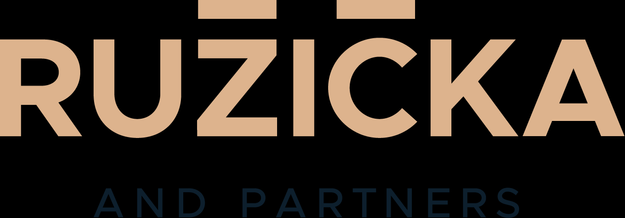Changes in Life and Law Hardly Ever Stop
The same time last year we published an article about changes to the system of remedies under Slovak public procurement law which were brought about by an amendment to the Slovak Public Procurement Act with effects from 1 January 2019. Not even a full year has gone by and the Slovak Parliament has passed another significant amendment to the regulation of remedies which shall take effect from 1 January 2020. Granted, there is always room to improve the laws but constant changes to such an important piece of legislation mean that users of the system can hardly get used to it before it is tweaked at best, or totally changed at worst. It seems that we can make this a yearly update, so this is 2019's take on some of the effects of yet another amendment on the national remedy system from the perspective of the tenderers.
Eradication of Speculative Challenges or an Attempt to Curtail Tenderers' Rights
In order to eliminate speculative behaviour of economic operators, the regulator introduced a new concept called “an apparently ungrounded challenge” or put more simply “a speculative challenge”. If a speculative challenge is filed, the regulator will stop the remedy procedure and the contracting authority which was hurt by such a challenge may claim damages from the challenger. This all seems fine on paper, but the definition of the speculative challenge contains too many unclear terms and its very existence may lead to hesitation of tenderers to enforce their rights guaranteed by European public procurement regulation. Damages caused by ungrounded challenged may be theoretically massive and it will be interesting to follow the practice of the regulator and the courts both in terms of what kind of line they will draw between a grounded and an ungrounded challenge and what sort of damages they will accept as enforceable based on the “abuse” of the remedy system.
Increased Fees
While lawmakers could claim last year that the fees associated with remedies had been decreased, strengthening the position of tenderers in enforcing their rights, the opposite applies to the 2019 amendment. Life of unhappy tenderers will be more expensive as the fees rose ten times and, contrary to the former regime where they increased towards the business end of a tender, apply in the same way in all stages of procedure. The amount of fees was set at 1% of the estimated contract value with the floor of EUR 2.000 and a cap of EUR 50.000 remaining unchanged. This means for example that if a tenderer were to challenge a contract notice for goods in the estimated value of EUR 3.000.000 under current rules, it would have to pay EUR 3.000 in administrative fees. Given the increase, in the same situation as of January 2020, the tenderer would be set back by EUR 30.000. In high-profile projects worth tens of millions, the fees would remain the same given the unchanged cap but there will be many situations in mid-size tenders where international bidders will find themselves much worse off than before. Another important change in the regulation of fees goes hand in hand with introduction of the concept of speculative challenges. If a tenderer files a challenge that is labelled as speculative by the regulator, the latter will stop the remedy procedure and keep the fees in full. In other cases of stopping the procedure, however, the fees are returned to the challenger. Hence, tenderers will have to be even more careful to make their challenges firmly grounded or they run the risk of losing their money in full.

Overall Assessment
The introduction of the concept of the apparently ungrounded challenge and increase of fees aim to eliminate speculative behaviour by tenderers when enforcing their rights and filing challenges against contract award procedures. Of course, credit must be granted to the Public Procurement Authority and the National Council of the Slovak Republic that it intends to improve the system as there is no doubt some level of abuse of it by entities that are not genuinely interested in winning a tender but for some reason attempt to frustrate the process. Nevertheless, it seems that stability, time and patience to develop settled case law would accommodate the needs of stakeholders better than endless modifications. It remains to be seen how the new system works, and, more than anything else, how long it will last. Fun fact: the chairman of the Public Procurement Office publicly asked the President of the Slovak Republic to veto the amendment because of changes introduced to the bill during the approval process in the Parliament. One of the reasons was the increase of fees as discussed above. The President obliged and vetoed the amendment with comments.
The Parliament was not able to outvote the the veto and the bill will not make it into law in its current shape. It is, however, likely that the Public Procurement Office will try to come back with the amendments and submit it to the new-look Parlament in a different form in 2020.
Ján Azud
Ján Azud is the head of Projects, infrastructure and public procurement practice of RUŽIČKA AND PARTNERS law firm. His more than 19 years long practice focuses on development of infrastructure projects, PPPs, public procurement and project financing. Over the years, he has acquired ample experience by participating in major projects and vast amount of public procurement proceedings on both local and international levels. From 2013 to 2018, Ján was a member of the Board of the Public Procurement Office. For three years he also acted as the adviser to the Chairman of the Public Procurement Office. Under his lead, the firm´s public procurement practice was granted the Law Firm of the Year award for seven consecutive years. This year, Ján as the leading author together with other colleagues from his team finalised the Commentary to the Public Procurement Act, published in October 2019.

 Ján Azud
Ján Azud